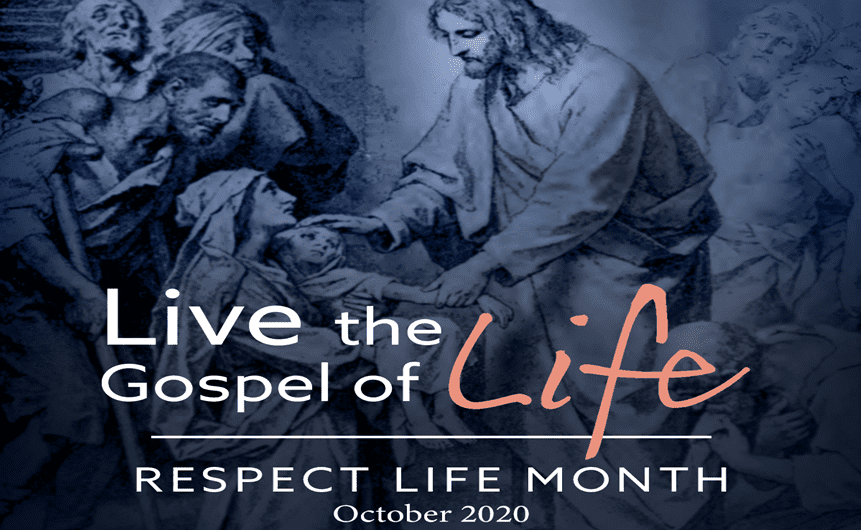A Message from Archbishop Wenski
Tuesday, November 3rd, is Election Day (although many of us already will have voted through mail or at an early voting location). As Catholics, we see responsible citizenship as a virtue, and thus participation in the political process is not only a right but also a duty. And so, as Catholics and as American citizens, we should exercise the right and duty of our citizenship by voting. Besides several state and local races, this election will decide who will be president and vice-president for the next four years and who will represent us from our congressional district in the House of Representatives for the next two years.
Our Church rightly does not tell the faithful to vote for any candidate or party. The Catholic Church is not — nor does she want to be — a political agency or a special interest group. However, she does have a profound interest — and rightly so — in the good of the political community, the soul of which is justice. For this reason, the Church engages in a wide variety of public policy issues including the defense of unborn life, of religious liberty and of marriage as a union of one man and one woman, as well as advocacy on issues concerning immigration, education, poverty and racism, along with many others.
The United States Conference of Catholic Bishops and, on the state level, our Florida Catholic Conference, seek to educate Catholics and others of good will so that our choices, made with an informed conscience, will be coherent with our faith. In doing so, the Church offers a specific moral framework that should guide the voter in making prudential decisions as to who are the “best” candidates — or, as sadly happens too often, who are the least “worse” candidates. This moral framework anchored in the Scriptures and expressed in the teaching of the Church — more than mere party affiliation or self-interest —should guide the serious Catholic to examine the candidates on a full range of issues as well as on their personal integrity, philosophy, and performance. In this way, our vote will be an exercise of both responsible as well as faithful citizenship.
For Catholics, the defense of human life and dignity is not a “narrow cause” but a way of life. As Pope Francis says, “Human life is sacred and inviolable. Every civil right is based on the recognition of the first, fundamental right, the right to life, which is not subject to any condition, of a qualitative, economic and certainly not of an ideological nature.”
For this reason, no Catholic should vote for a political program or law with the intent of contradicting the fundamental principles of our faith. A voter who would vote for a candidate precisely because he or she was pro-abortion would certainly be guilty of sin — objectively speaking. Someone may arrive at a prudential decision to vote for a candidate for other reasons even though his or her record is one of supporting the killing of unborn infants or legalized euthanasia. But such a decision would have to be weighed very carefully given the candidate’s manifest cooperation in evil (the enablement of abortion).
The stridency and polarization of politics in America today can be discouraging. We need a new kind of politics — one focused on moral principles, not on polls; on the needs of the vulnerable, not the contributions of the powerful; and on the pursuit of the common good, not the demands of special interests.
Too few candidates share a consistent concern for human life and dignity. And too few citizens hold elected officials accountable by exercising their right to vote. All this shows that, as Catholics, we should be more — and not less —engaged in political life. All of us are called to become informed, active and responsible participants in the political process — and to do so by bringing together, coherently and consistently, our faith, our moral convictions and our responsibilities in the public square.
Catholics in public life — whether they are Democrats or Republicans —must act seriously and responsibly on many important moral issues. Our faith has an integral unity that calls Catholics to defend human life and human dignity whenever they are threatened. A priority for the poor, the protection of family life, the pursuit of justice and the promotion of peace are fundamental priorities of the Catholic moral tradition which cannot be ignored or neglected. Yet abortion is a grave violation of the most fundamental human right — the right to life that is inherent in all human beings, and that grounds every other right we possess. That some Catholics in public life promote positions on human life that are not coherent with their Catholic faith is a scandal and while they may claim to be “practicing” Catholics, it is obvious that they need to practice a whole lot more — until they get it right.

